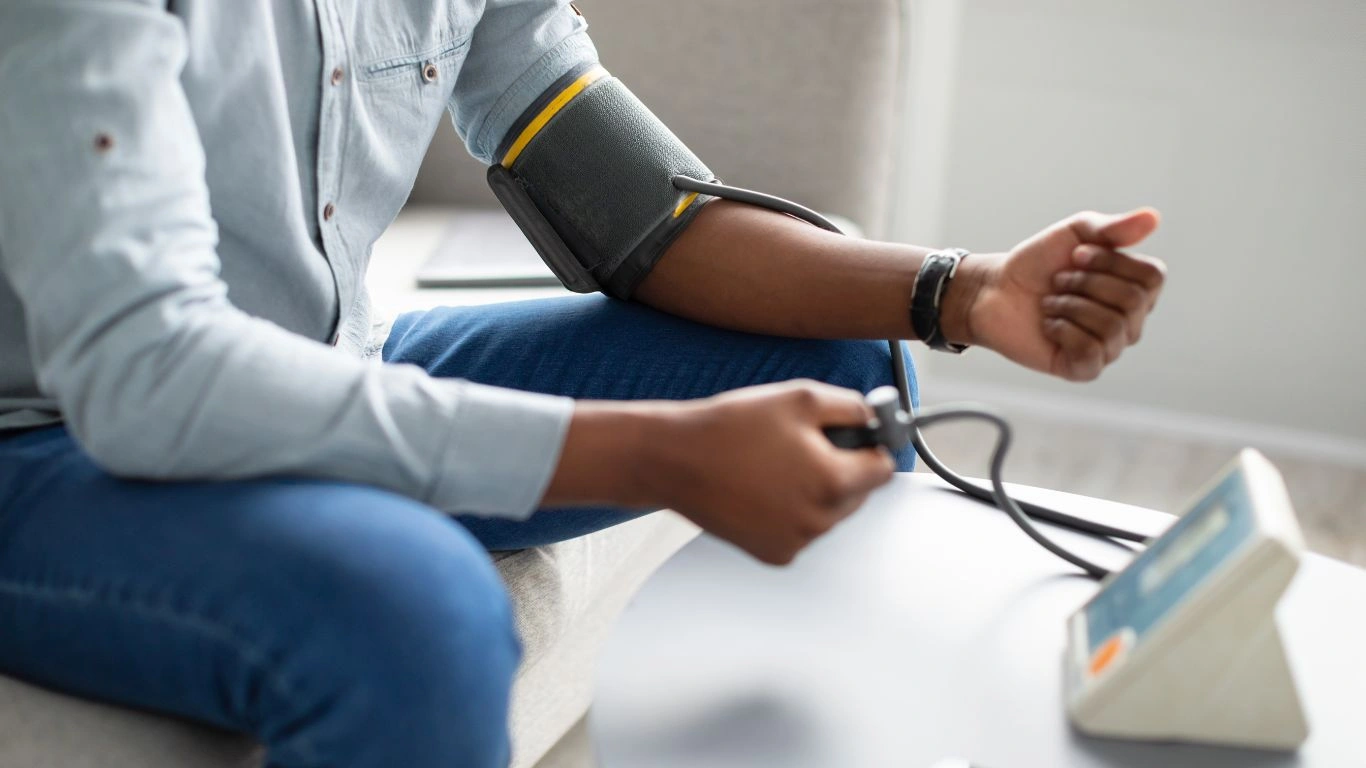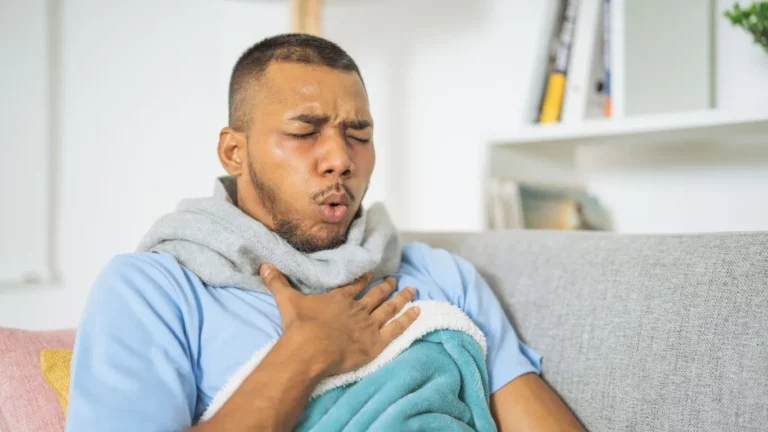Hypertension & Flu Season: Avoid These Deadly Mistakes
Flu season is never fun, but when you have high blood pressure, it can be a real headache—literally and figuratively. Hypertension management during flu season isn’t just about taking your regular meds; it’s about understanding how the flu, your blood pressure, and even those over-the-counter remedies interact. As someone who has seen countless patients struggle with this, I know firsthand how tricky it can be. Let’s break it down so you can stay healthy without sending your BP through the roof.
Why Flu Season is Risky for Hypertensive Individuals

It’s easy to think of the flu as just a bad cold, but for those of us dealing with high blood pressure, it’s much more than that. The flu can trigger inflammatory responses in the body, increasing stress on the heart and blood vessels. And if you’ve ever had a fever, you know how it messes with hydration levels—dehydration can lead to dangerous blood pressure fluctuations.
How the Flu Affects Blood Pressure
- Inflammation overload: The body releases stress hormones to fight off infections, which can cause blood pressure spikes.
- Fever and dehydration: High temperatures make you sweat more, leading to lower blood volume and potential BP drops—or unexpected spikes.
- Breathing troubles: Congestion and flu symptoms can lower oxygen levels, making your heart work harder.
Safe Flu Medications for People with Hypertension

One of the biggest mistakes I see people make is grabbing any flu medicine off the shelf without checking the label. Many decongestants contain pseudoephedrine—a notorious ingredient that can send your blood pressure skyrocketing. If you’ve ever felt jittery or noticed a BP spike after taking cold medicine, this might be why.
What to Avoid
- Decongestants: Ingredients like pseudoephedrine or phenylephrine can constrict blood vessels, increasing blood pressure.
- NSAIDs (like ibuprofen): These pain relievers can cause fluid retention, making hypertension worse.
Safer Alternatives
- Acetaminophen (Tylenol): A safer pain reliever that doesn’t affect blood pressure.
- Saline nasal spray: Clears congestion without raising BP.
- Antihistamines: Some options, like loratadine, are safer than decongestants.
Flu Prevention Tips for People with High Blood Pressure

Prevention is always better than scrambling for a cure. And trust me, when you have hypertension, you want to avoid anything that throws your body off balance.
Vaccination and Extra Precautions
- Get your flu shot: It’s your best defense against serious flu complications.
- Wash your hands: Sounds basic, but it makes a huge difference.
- Manage stress: High stress levels weaken immunity and increase BP.
Flu season and hypertension may not mix well, but with the right approach, you can stay on top of both.
Managing Blood Pressure While Recovering from the Flu

So, you’ve caught the flu despite your best efforts—now what? When you have hypertension, recovery isn’t just about resting; it’s about keeping your blood pressure stable while your body fights off the virus. I’ve seen many patients struggle with unexpected BP spikes or drops during flu recovery, and trust me, it’s no fun.
Hydration is Key
When you’re sick, it’s easy to forget to drink enough water. But dehydration can cause your blood pressure to fluctuate, making you feel dizzy or lightheaded. The flu already drains your energy, and low hydration levels just make it worse.
- Stick to electrolyte-rich drinks: Water is great, but if you’re sweating a lot, a low-sodium electrolyte drink can help keep your fluids balanced.
- Avoid caffeine: It might give you a temporary boost, but it can also dehydrate you and raise your BP.
- Watch out for sugar: Many sports drinks are loaded with sugar, which isn’t great for heart health. Opt for natural options like coconut water.
Rest, But Keep Moving
When you have the flu, your body begs you to stay in bed all day. And while rest is crucial, staying completely inactive for days can cause circulation issues, especially if you already have high blood pressure.
- Try light movement: A short walk around your house can prevent blood from pooling and keep circulation steady.
- Avoid long periods of lying flat: Propping yourself up slightly with pillows can help with congestion and circulation.
When to Seek Medical Help

As much as we’d all love to power through the flu at home, sometimes medical help is necessary—especially for those of us managing hypertension. But how do you know when it’s time to pick up the phone?
Warning Signs to Watch For
- Persistent high blood pressure: If your BP stays significantly elevated even after resting and hydrating, it’s time to check in with your doctor.
- Chest pain or shortness of breath: The flu can put extra strain on your heart, so don’t ignore these symptoms.
- Extreme dizziness or confusion: Severe dehydration or low oxygen levels can cause cognitive issues.
Should You Go to the ER?
Not every flu-related issue requires an ER visit, but some do. If you experience severe symptoms like a racing heart, extreme difficulty breathing, or sudden BP spikes, don’t wait—get help immediately. It’s better to be cautious than to risk complications.
Best Foods to Eat When Managing Hypertension and the Flu

When you’re sick, your appetite takes a hit. But what you eat plays a huge role in both your flu recovery and blood pressure management. Instead of grabbing whatever’s easiest, focus on foods that support both your immune system and heart health.
Top Foods to Eat
- Garlic and onions: Natural anti-inflammatory properties help lower BP and fight off infections.
- Leafy greens: High in potassium, they help regulate fluid balance.
- Oatmeal: Easy on the stomach and great for heart health.
- Bananas: A natural potassium boost to help balance blood pressure.
Foods to Avoid
- Salty soups: Canned soups are convenient but often loaded with sodium.
- Sugary comfort foods: Processed carbs and sugars weaken immunity.
- Alcohol: Dehydrates the body and can raise BP.
Recovering from the flu while managing hypertension takes extra care, but with the right approach, you can bounce back without major BP swings. Stay hydrated, eat smart, and listen to your body!
Case Studies & Real-Life Examples

To truly understand the impact of flu season on hypertension, let’s take a look at real-life cases. Over the years, I’ve seen many patients struggle with balancing flu symptoms and blood pressure, but a few stories stand out.
Case 1: John’s Close Call
John, a 62-year-old retired teacher, had well-managed hypertension—until the flu hit him hard. He figured he could push through without adjusting his meds or diet. But dehydration and over-the-counter flu meds sent his BP soaring to dangerous levels. A late-night ER visit and IV fluids got him back on track, but it was a scary wake-up call. Now, John swears by extra hydration and always consults his doctor before taking new meds.
Case 2: Lisa’s Overcorrection
Lisa, a 45-year-old nurse, went the opposite route. Worried about high blood pressure, she cut back on food and meds when she got the flu. The result? Her BP dropped so low she nearly fainted. A quick consultation helped her adjust her approach—small, frequent meals and careful medication management kept her stable. Her takeaway? Balance is key, not extremes.
What We Can Learn
- Ignoring hypertension during the flu is risky.
- Overcompensating can be just as dangerous.
- Every person’s body reacts differently—listen to yours.
Key Takeaways: What You Need to Remember
Let’s break it down into a few key takeaways to keep in mind during flu season.
- Monitor your blood pressure: Don’t assume it will stay stable—check it regularly.
- Stay hydrated: Water and electrolyte balance matter more than you think.
- Choose flu meds wisely: Many contain hidden BP-raising ingredients.
- Adjust your diet: Eat potassium-rich, heart-healthy foods while sick.
- Know when to seek help: High BP spikes or dizziness need medical attention.
FAQs
These are some common questions I get from patients about hypertension and flu season.
1. Can the flu cause a sudden spike in blood pressure?
Yes, especially if you’re dehydrated, stressed, or taking flu medications with decongestants. The body’s immune response can also temporarily raise BP.
2. Are there any flu meds safe for people with high blood pressure?
Yes! Look for options labeled “decongestant-free” and avoid anything with pseudoephedrine. When in doubt, ask your doctor.
3. Should I stop taking my hypertension meds if I have the flu?
Never stop taking your medication unless your doctor advises it. However, if you feel lightheaded or weak, it’s worth checking if an adjustment is needed.
4. How do I know if my flu symptoms are affecting my heart?
Watch for chest pain, shortness of breath, or extreme dizziness. If you experience any of these, seek medical help immediately.
Bonus: Additional Resources or DIY Tips
Want to manage your blood pressure effectively during flu season? Here are some extra tips and resources:
- DIY Natural Flu Remedies: Try warm lemon water with honey, ginger tea, and steam inhalation to ease symptoms without raising BP.
- Guided Relaxation Apps: Stress management is key—apps like Calm and Headspace can help lower BP naturally.
- Online BP Trackers: Keep a digital log of your blood pressure readings for easy monitoring.
Appendix: References, Disclaimer, and Call to Action
References
Disclaimer
This article is for informational purposes only and should not replace professional medical advice. Always consult your healthcare provider regarding any health concerns.
Call to Action
Hypertension doesn’t have to make flu season harder! Share this article with a friend who might need it, and don’t forget to talk to your doctor about the best way to stay healthy during cold and flu season.

Dr. Gwenna Aazee is a board-certified Internal Medicine Physician with a special focus on hypertension management, chronic disease prevention, and patient education. With years of experience in both clinical practice and medical writing, she’s passionate about turning evidence-based medicine into accessible, actionable advice. Through her work at Healthusias.com, Dr. Aazee empowers readers to take charge of their health with confidence and clarity. Off the clock, she enjoys deep dives into nutrition research, long walks with her rescue pup, and simplifying medical jargon one article at a time.







